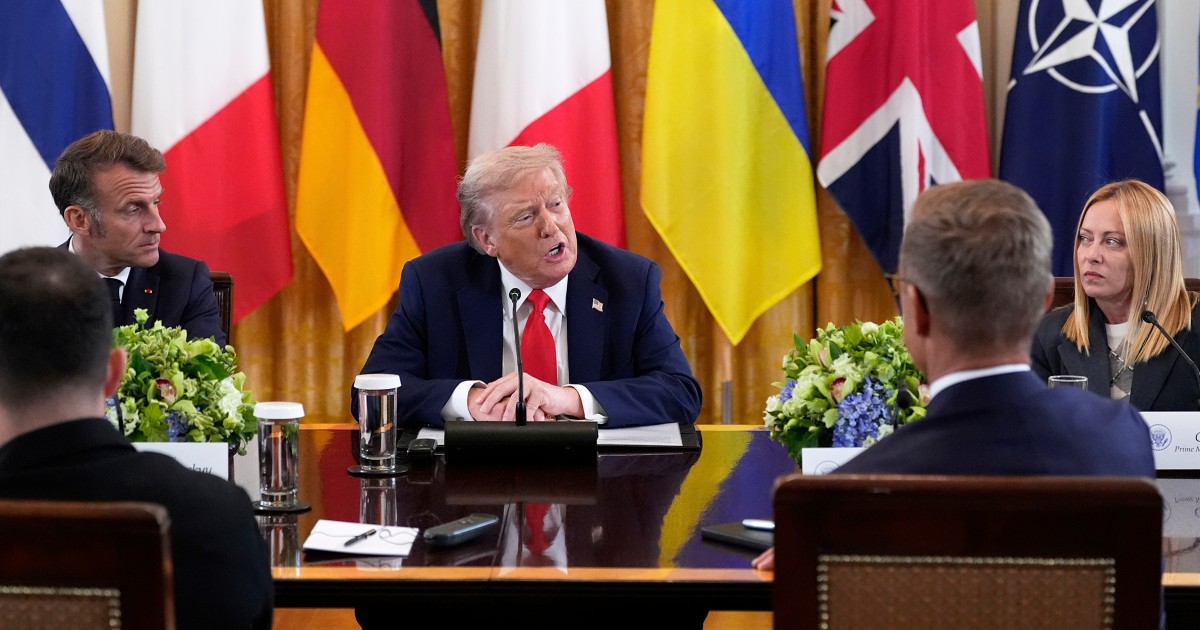The United States has agreed to limit tariffs on pharmaceuticals, lumber and semiconductors imported from the European Union to 15%, according to an agreement released Thursday.
President Donald Trump recently threatened the European pharmaceutical industry with tariffs as high as 250% and the region’s semiconductor industry with tariff rates as high as 100%.
The announcement comes as Trump’s global trade agenda takes shape weeks after his administration locked in tariff rates for imports from dozens of countries. Economists warn that the tariffs, a tax on goods paid by importing companies, are fueling persistent inflation. The Trump administration has touted tens of billions of dollars in revenue from the duties.
In a statement, European Commission President Ursula von der Leyen said, “Faced with a challenging situation, we have delivered for our Member States and industry, and restored clarity and coherence to transatlantic trade.”
The E.U. also stressed that “tariffs are paid by the company importing the imported goods.”
“In the end, it is usually the consumers (in this case, US consumers) who will indirectly pay for the tariffs.”
In the framework E.U. trade agreement, the United States said it plans to roll back tariffs on “unavailable natural resources (including cork), all aircraft and aircraft parts, generic pharmaceuticals and their ingredients and chemical precursors” to pre-January levels starting Sept. 1.
European Commissioner for Trade Maroš Šefčovič said “this framework is the first step, one that can grow over time” to include further exemptions.
One of the most important exemptions sought by the E.U. for the wine and spirits industry did not make it into Thursday’s agreement. Šefčovič said “unfortunately here we didn’t succeed,” but added that he would continue to discuss it with his American counterparts.
“These new higher tariffs on EU spirits products will further compound the challenges facing restaurants and bars nationwide,” Distilled Spirits Council President Chris Swonger said in a statement.
Commerce Secretary Howard Lutnick said in a post on X, “The America First Trade Agenda has secured the most important trading partner creating a major win for American workers, U.S. industries, and our national security.”
Ireland, an E.U. member state, is one of the top sources of pharmaceutical imports for the United States. The pre-January tariff rate on aircraft imports was zero. The European Union, as a whole, is the United States’ largest trading partner.
Irish Prime Minister Micheál Martin said he welcomed Thursday’s agreement. In a statement, he said: “Given the scale of the pharmaceutical and semiconductor sectors in Ireland, it is important that the Joint Statement confirms that 15% is a ceiling” for those tariffs.
“While I have been clear all along that I do not support tariffs, this is a significant win for the E.U.”
The deal includes a promise from the E.U. to buy energy and artificial intelligence technology from the United States.
“The European Union intends to procure U.S. liquified natural gas, oil, and nuclear energy products with an expected offtake valued at $750 billion through 2028. In addition, the European Union intends to purchase at least $40 billion worth of U.S. AI chips for its computing centers,” the statement reads. That echoes what Trump and European Commission President Ursula von der Leyen announced last month when they first announced the contours of the deal.
The announcement also says, “European companies are expected to invest an additional $600 billion across strategic sectors in the United States through 2028.”
Trump has framed the dollar figures for Europe’s energy and investment intentions as firm commitments, but the document the United States and the E.U. agreed to clearly says they are only expectations spanning the next three years. But Trump touted the deal to CNBC in early August as “a gift” that the United States does not have to pay back.
Trump added that any government that did not follow through with the promised investments or purchases would immediately face higher tariffs.
“The details are $600 billion to invest in anything I want,” he said on CNBC.
The E.U.’s blanket “reciprocal” tariff will remain 15% as part of the announcement. That rate already took effect on Aug. 7. The United States also plans to reduce auto tariffs on European imports, but only after the E.U. introduces legislation to lower its industrial tariffs.
A senior administration official told NBC News that introducing the legislation would be enough to enact the lower auto tariffs. The European Commission said it plans to introduce that legislation as soon as possible. Trade commissioner Šefčovič also said that U.S. told him the lower auto tariffs would be retroactive to Aug. 1.
Two of the E.U.’s biggest automakers, Volkswagen and Mercedes-Benz, welcomed Thursday’s announcement.
Mercedes hailed the deal as “crucial for the future economic success of both markets.” The German automaker noted that it employs more than 163,000 people in the U.S. in its corporate offices and dealerships.
Volkswagen said “this is an important step” towards “planning certainty … regarding U.S. imports of Volkswagen Group vehicles.”
Economists at ING, a investment bank based in Europe, said “the only real upside for Europe is that the outcome could have been worse, and that there is now some clarity.” But they warned the deal is “fragile and could quickly dissolve.”
They added that the ambiguity of parts of the deal “leaves room for both interpretation and potential escalation.”
Anna Cavazzini, chair of the European Parliament’s Committee on the Internal Market and Consumer Protection, said the deal “shows Trump and the rest of the world that his blackmail works, further weakening the global rules-based order.”
“It is a bad deal for Europe. It imposes tariffs on European exports to the US and further increases Europe’s dependence on the United States,” Cavazzini added.
The two sides also say they plan to cooperate on restrictions other countries have imposed on critical mineral exports and work together on digital trade barriers.
